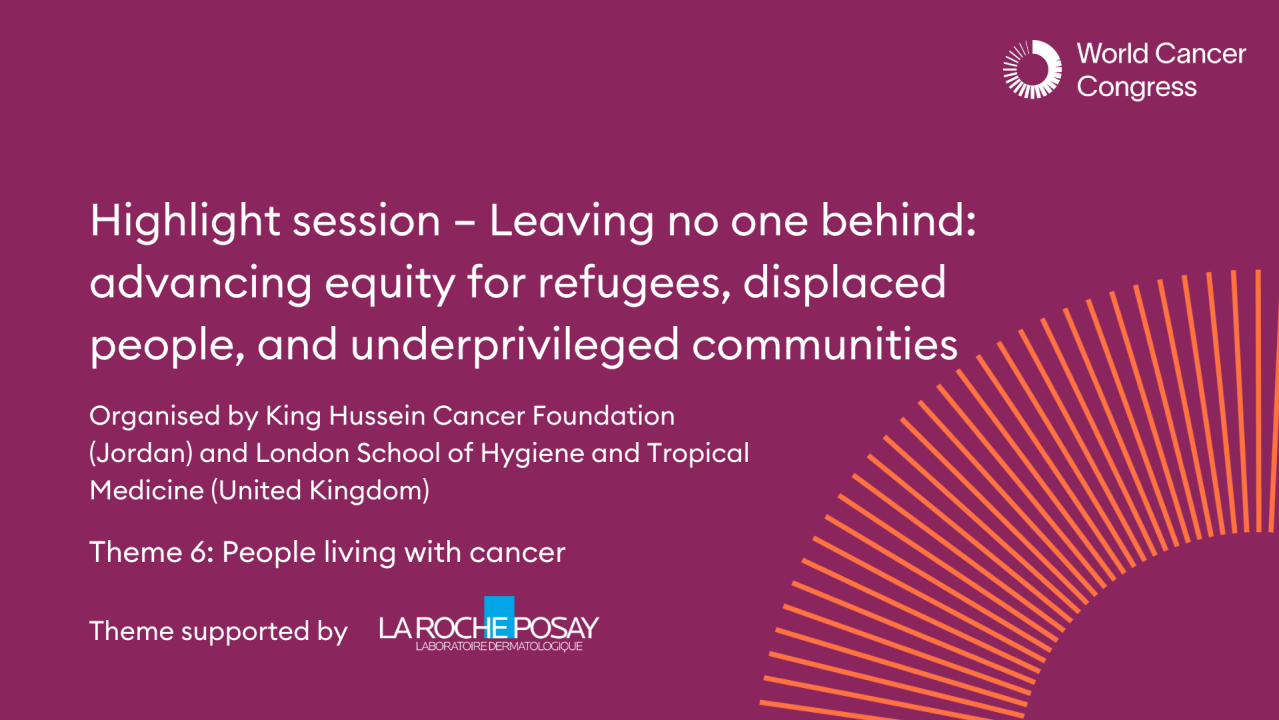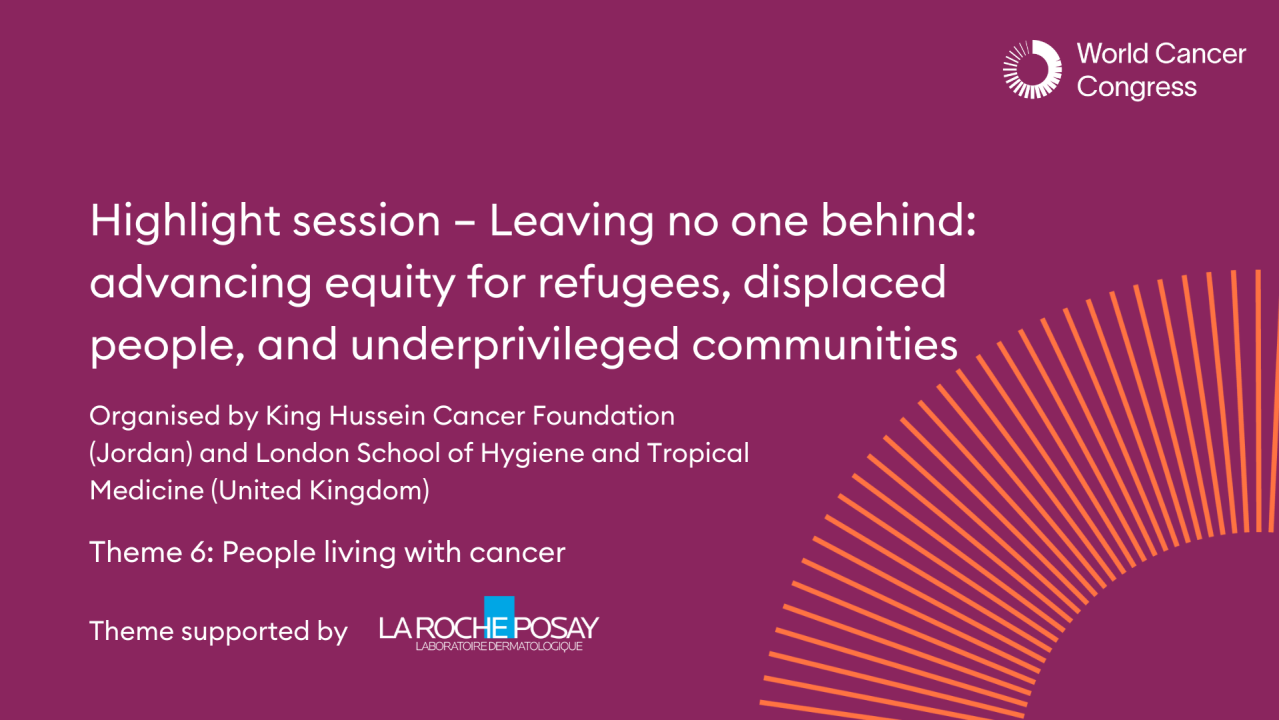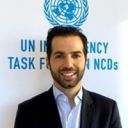

Highlight session – Leaving no one behind: advancing equity for refugees, displaced people, and underprivileged communities
Amphitheatre D (level +1)
Highlight session
Information
Session organised by King Hussein Cancer Foundation, London School of Hygiene and Tropical Medicine
Chaired by Richard Sullivan, King's College London (United Kingdom)
Presentations:1. - Miriam Mutebi, Aga Khan University (Kenya)
2. - Natalia Luxardo, Universidad de Buenos Aires (Argentina)
3. - Rana Ghafary, King Hussein Cancer Foundation (Jordan)
4. - Ajay Aggarwal, London School of Hygiene and Tropical Medicine (United Kingdom)
5. - Carlos Rodriguez-Galindo, St. Jude Children's Research Hospital (United States)
6. - Andre Ilbawi, World Health Organization (WHO) (Switzerland)
Theme
3. Healthcare systems and policies
Objectives
Cancer is a leading cause of death worldwide, but access to cancer care is not equitable. This observation is valid among refugees and displaced populations, but also for underprivileged communities even in countries with advanced universal health coverage (UHC), which is a concern given the global movement toward UHC, a key indicator of the UN Sustainable Development Goals.All these populations face a series of barriers to accessing cancer care, including lack of awareness, lack of advocacy, financial constraints, and cultural sensitivities, as well as internal barriers to the healthcare system which can unintentionally exacerbate such inequalities, even in presence of UHC.This session will bring together experts to showcase challenges and successful models, strategies and sustainable fundraising and financing solutions to attain equity within various settings and realities (including humanitarian crises, countries with limited resources as well as high-income countries) as well as the synergies that can be created through collaboration between organisations to create bridges to achieve equity in cancer care for all. It will also highlight the impact of employing a prioritisation and collaborative approach in delivering quality cancer-care in very different contexts as well as deliberate on the moral obligations and tough decisions that need to be navigated in times of crisis within the realm of cancer care equity.
Speakers

Richard Sullivan
Prof, Cancer & Global HealthKing's College London
Miriam Mutebi
UICC Board memberAga Khan University
Natalia Luxardo
ResearcherUniversidad de Buenos Aires
Rana Ghafary
Director of Advocacy and Government RelationsKing Hussein Cancer FoundationAA
Ajay Aggarwal
Consultant Clinical OncologistLondon School of Hygiene and Tropical Medicine
Carlos Rodriguez-Galindo
EVP and Director, St. Jude GlobalSt. Jude Children's Research Hospital
Andre Ilbawi
Lead, cancer controlWorld Health Organization (WHO)